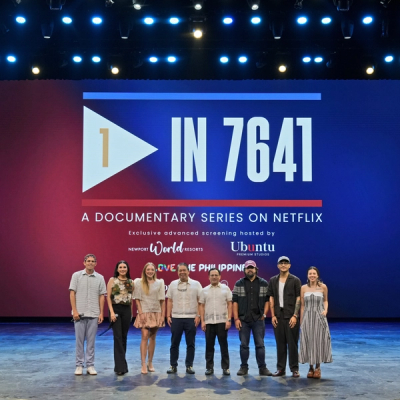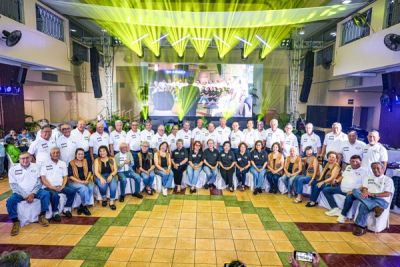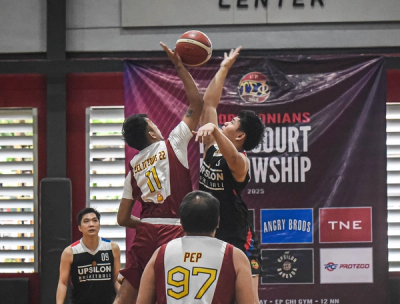Politics & Government
When I Meet You Under the Sun: A Tribute to Benigno “Ninoy” Aquino Jr. ’50
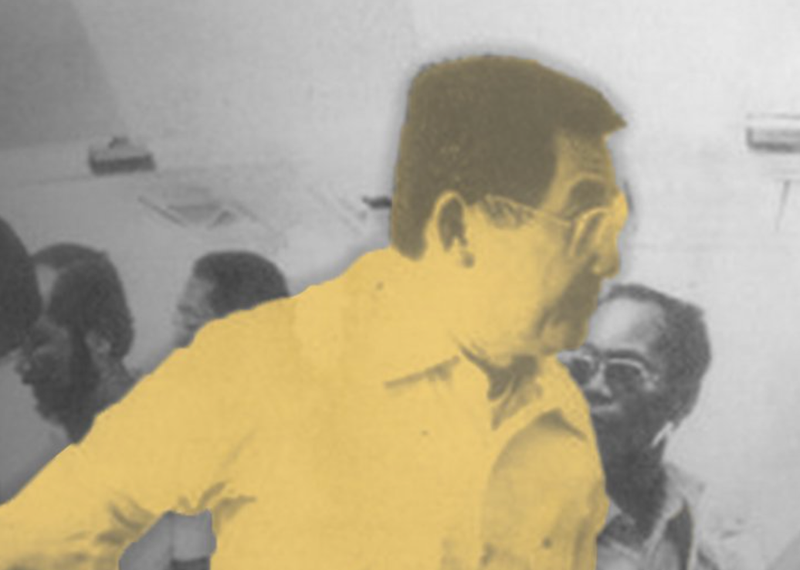
I remember first the heat. Manila in August, sticky with sweat and foreboding. The morning of August 21, 1983, we gathered—thirty Upsilonians in the parking lot of the College of Arts and Letters, each of us bearing both excitement and a shadow we could not yet name. I had been Illustrious Fellow for barely a week, and already the fraternity’s first summons to me was to welcome home a brother. Ninoy. Batch ’50.
The roads to the airport were sealed that morning—soldiers in fatigue and policemen with rifles blocking every turn, suspicion heavy in the August air. Yet seven of us slipped through: Chito Avecilla, Manny Lopez, Jing Paras, Ike Sinajon, June-June Villarreal, Mero Yu, and I—brothers bound not by chance but by covenant, threading checkpoints with nothing but loyalty and a stubborn hope.
We found our way to the executive lounge, where Doña Aurora waited with the grace of a mother’s quiet strength, and Doy Laurel stood, restless, measuring the minutes. The room was thick with anticipation, a nation’s breath held for a son’s return.
Then—a crack split the air, sharp and final. In that instant, the waiting turned to wailing, and the silence that followed was the loudest thing I have ever heard.
The Fraternity’s Heartbeat
To speak of Ninoy is to remember laughter first. Joey Ampeso once told me of the day he, a neophyte, nervously approached Ninoy for a fundraising contribution. Ninoy, ever the mischief-maker, grinned and teased, “Brod, you must be a new brod, mukhang na-initiate ka ng husto!” Then, without hesitation, he pulled out a thousand pesos—a fortune for a student in those days—and gave. His wit could disarm, his generosity could humble.
At the Tambayan, he was the kind who drew circles of younger brods to his side, urging them to ask questions, to question everything. He lived in perpetual motion, bored with convention, restless in curiosity. And yet, he had the patience to mentor, to guide. The paradox of our fraternity was alive in him: Ninoy and Ferdinand Marcos, both Upsilonians, could stand shoulder to shoulder as brothers even as history set them on opposite shores. Such is the fraternity’s strange alchemy—binding men by blood oaths even when politics sought to unbind them.
The Man Behind the Martyr
The man we called “brod” was not the marble martyr they inscribed later in the nation’s textbooks. He was a host who would not let a brother’s son eat Christmas dinner alone in a lonely Boston winter. He was a husband who, in exile, still thought of return. He was a restless mind, always searching, always turning over the soil of an idea as though some seed of truth might break through if only he tended it long enough.
His famous creed—“The Filipino is worth dying for”—was no mere pronouncement for the history books. It was the marrow of his life. He had lived as though that creed demanded not one great sacrifice, but the small daily sacrifices: humor instead of bitterness, kindness instead of calculation, faith in a people who had too often been betrayed.
August 21, 1983: A Brotherhood Shattered and Forged
We did not welcome him. We buried him.
Six days later, on August 27, I stood at the UP Chapel of the Holy Sacrifice, leading the Final Rites of the Upsilon Sigma Phi for Ninoy. A circle of brothers, each clutching a candle that guttered in the chapel’s thick air, formed around his coffin. We called his name. Once, twice, thrice. And when the silence answered, I spoke the words no brother ever wishes to speak: that he had answered his final call.
The next morning, August 28, we marched with his body from the Chapel to Sto. Domingo. I told my brothers: no politics, no slogans of rebellion. Our presence was fraternal, not partisan. Marcos, too, was a brod, and the bier was no place for vendettas. So we carried banners that bore not ideology but remembrance: “Brother, when I meet you under the sun, I shall tell you much.”
But in truth, even as we tried to guard the purity of our rites, the streets themselves betrayed us. They swelled with tens of thousands, chanting what we did not. Some deaths are too loud to silence pretense. Ninoy had turned us all into witnesses.
Legacy in the Unfinished
It was Kiko Pangilinan’s nineteenth birthday when he learned of Ninoy’s death. He has often said it was that ruthless act—garapal—that first stirred him into politics. How many more, faceless in the crowd, found their awakenings that week? Perhaps this is the true measure of a man’s life: the number of futures he ignites with the match of his own sacrifice.
The fraternity has not ceased to remember. Just last year, in 2024, we staged “Artistic Salutes: Celebrating Heroes Through Art.” National Artists like Gémino Abad and Kidlat Tahimik, fellow brods, stood before canvases and films to say what words could not: that Ninoy’s light is not extinguished but refracted, broken into a spectrum that still colors the lives of young men and women who never even saw him alive.
Epilogue: Brother, When I Meet You…
What lingers with me still is not the image of the tarmac, nor the coffin, nor even the ocean of mourners that surged on EDSA nearly three years later. What lingers is a smell: the candle wax melting down our fingers at the UP Chapel, dripping onto the polished floor as if the earth itself were weeping.
Ninoy, you loved sinigang more than any banquet dish, and you told bad jokes that landed only because you laughed at them first. You were a restless debater, a conspirator of dreams, a brother of infinite generosity.
We grieve you still. And yet, like you, we hope still. Because the torch you carried is no longer in your hands but in ours.
Brother, when I meet you under the sun, I shall tell you much—of how you remain the fraternity’s heartbeat, the nation’s unfinished dream, and the laughter we still hear in the silence after the shot.
About the Author
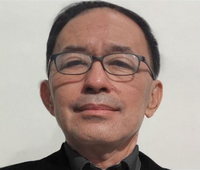
Louie Biraogo '79
Louis C. Birago '79 is a media practitioner, newspaper columnist and writer known for his bombastic exposés on social and political issues in the Philippines. Writing under the pseudonym "Citizen Barok," his prolific pen covers a wide range of topics and issues, and his particular brand of social advocacy endears him to his fans and followers, to the chagrin of those who find themselves in the receiving end of his honest but sometimes brutal commentaries. Mr. Biraogo studied law in the University of the Philippines and was a former illustrious fellow of the Upsilon Sigma Phi.
